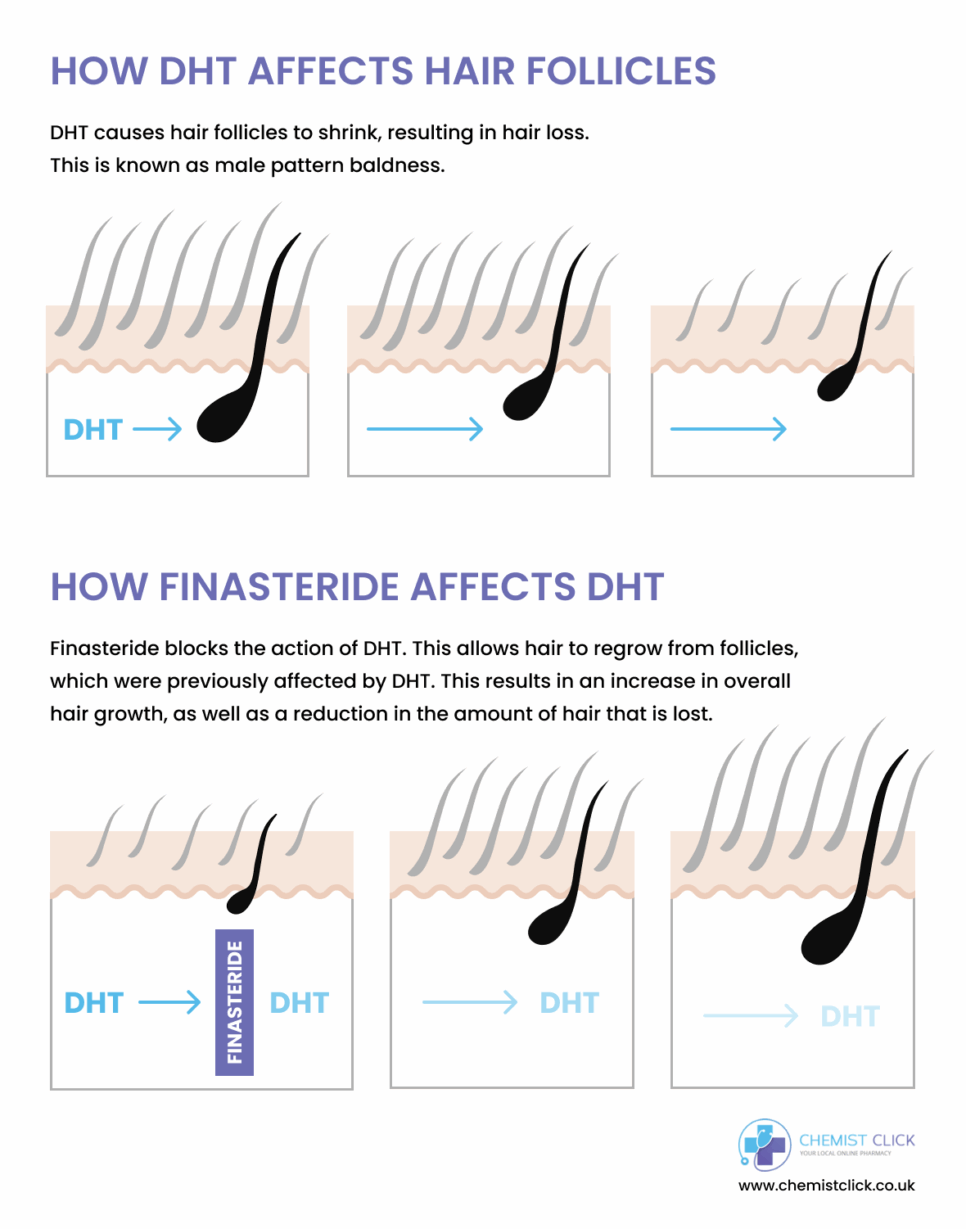A clinical trial carried out over a five-year period on over 1,800 men, has proven that taking finasteride 1mg once a day, slowed and reversed balding in more than 90% of men.
Another clinical trial conducted in over 2,500 men, demonstrated that finasteride had a positive impact on hair growth in 87% of men.
A separate scientific study conducted over two years on 1,500 men, demonstrated that 83% of men taking finasteride for two years, experienced an increase in hair growth, a complete halt to hair loss, or both.
Research has also proven finasteride to be more effective than Regaine (topical minoxidil 5%), in treating male pattern baldness.
So, it’s safe to say that science proves that finasteride is effective in helping men to regrow hair, as well as reducing the rate at which hair is lost. It is important to note that finasteride is most effective in helping to reduce thinning hair, receding hairlines and hair loss around the crown. If you have lost most of your hair or have a large and prominent bald patch around the crown, finasteride is unlikely to be of any benefit as your hair follicles are likely to be damaged beyond repair.




